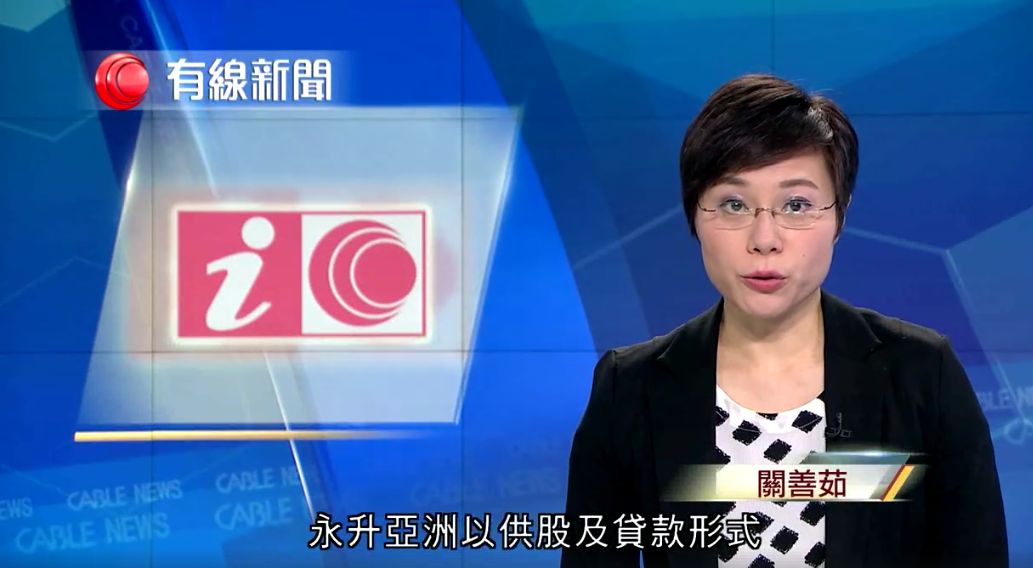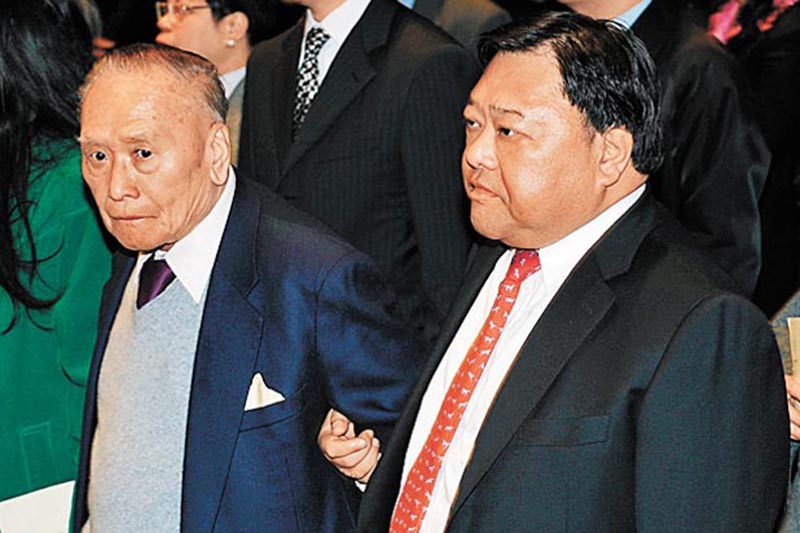David Chiu Tat-cheong, whose company will inject funds into the i-Cable television network, has said that he expected at most a ten per cent cut in staff. He denied being a “red capitalist” and said the news channel will retain its editorial freedom.
Chiu said the network was losing around HK$300 million a year and he hoped it can make a one-off HK$200 million cut in costs. Part of the plan was to lay off at most ten per cent of the 2,000 current staff, but the exact amount has yet to be decided as the company has yet to inject the funds and receive a detailed report from the network’s management.
“From my view, media is different from other businesses. The biggest asset is the talent,” he said. “I can’t tell you how big the layoff will be, but I hope the HK$200 million cut would involve as little staff as possible.”

“We sincerely believe in the TV industry, we believe in the broadband industry, we will continue [to] expand the industry.”
The new investor Forever Top is expected to raise HK$704 million in cash for the television network and become its largest shareholder.
Founded in 1993, i-Cable operates a 24-hour Cantonese-language news network in Hong Kong, and has received plaudits for its investigative journalism in Hong Kong and mainland China. But the channel’s future came into question last month after its parent company Wharf Holdings announced it would cease funding.
Wharf’s chairman Stephen Ng Tin-hoi is a pro-Beijing businessman, but the news channel has been known for a liberal stance.
Not red capitalists
The largest shareholder of Forever Top was real estate mogul Henry Cheng Kar-shun of New World Development. The two other shareholders are John Zhao Linghuan, the chairman of mainland private equity firm Hony Capital, and Li Sze-lim, chairman of the Guangzhou-based R&F Properties.
Pansy Ho Chiu-king, managing director of Shun Tak Holdings, pulled her shares from Forever Top before the announcement to invest in i-Cable. Chiu said it was because Forever Top spent more time than expected bidding for a free-to-air license and Ho decided not to invest more funds.
Chiu said he asked Cheng to join as Hong Kong regulations require two major shareholders of a television station to be based in Hong Kong.

Cheng is also a pro-Beijing businessman. But Chiu said under the new management, the news department would be “completely autonomous.”
“We understand that, other than news, other departments should have space for creative freedom – this is Forever Top’s principle,” he said. “Mr. Cheng and I are not red capitalists. We both grew up in Hong Kong and we both have investments in China, but which Hong Kong enterprise does not have investments in China?”
Forever Top said that it plans to strengthen the network’s financial news segment.
He said the channel’s strength was in local news and that it would likely keep its 24-hour news channel. “But to be honest, the other programmes on i-Cable have room to improve.”
“Hong Kong is an Asian financial hub. It is important to develop financial news,” he said. “The most correct approach would be to divert internal staff and resources into developing financial news.”

Emotional attachment
Chiu’s family owned the now-defunct Asia Television in the 1980s. Forever Top attempted to apply for its own free-to-air television license in 2015, but the application process was put on hold in 2016.
“I have been looking at mirror many times at this age,” Chiu said. “Is it really a good investment? The answer is not really. I guess we were emotionally attached to the industry.”
But he stressed that it would not be a bad investment for the shareholders of i-Cable’s stocks.
He also said the broadband services of i-Cable were still profitable: “We would actually expand our broadband.”
